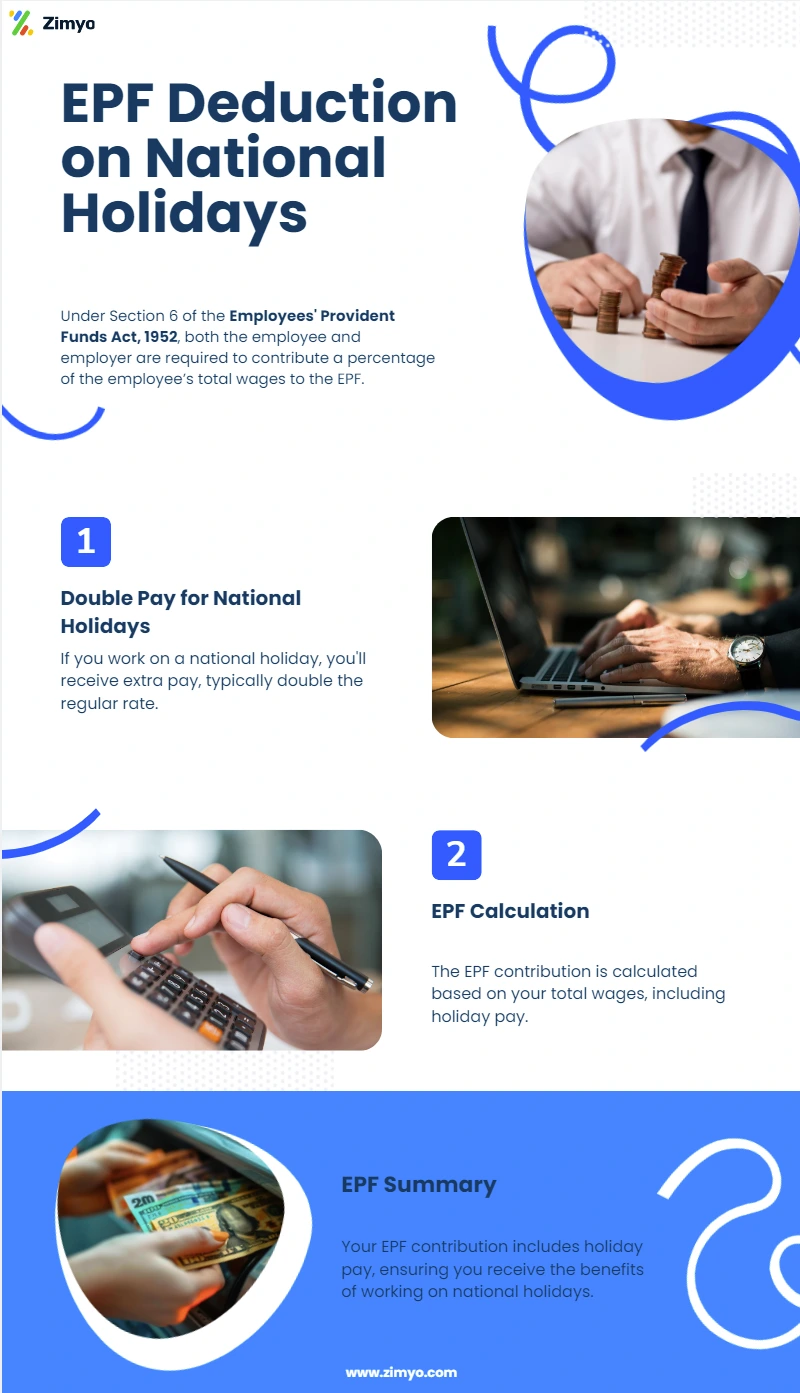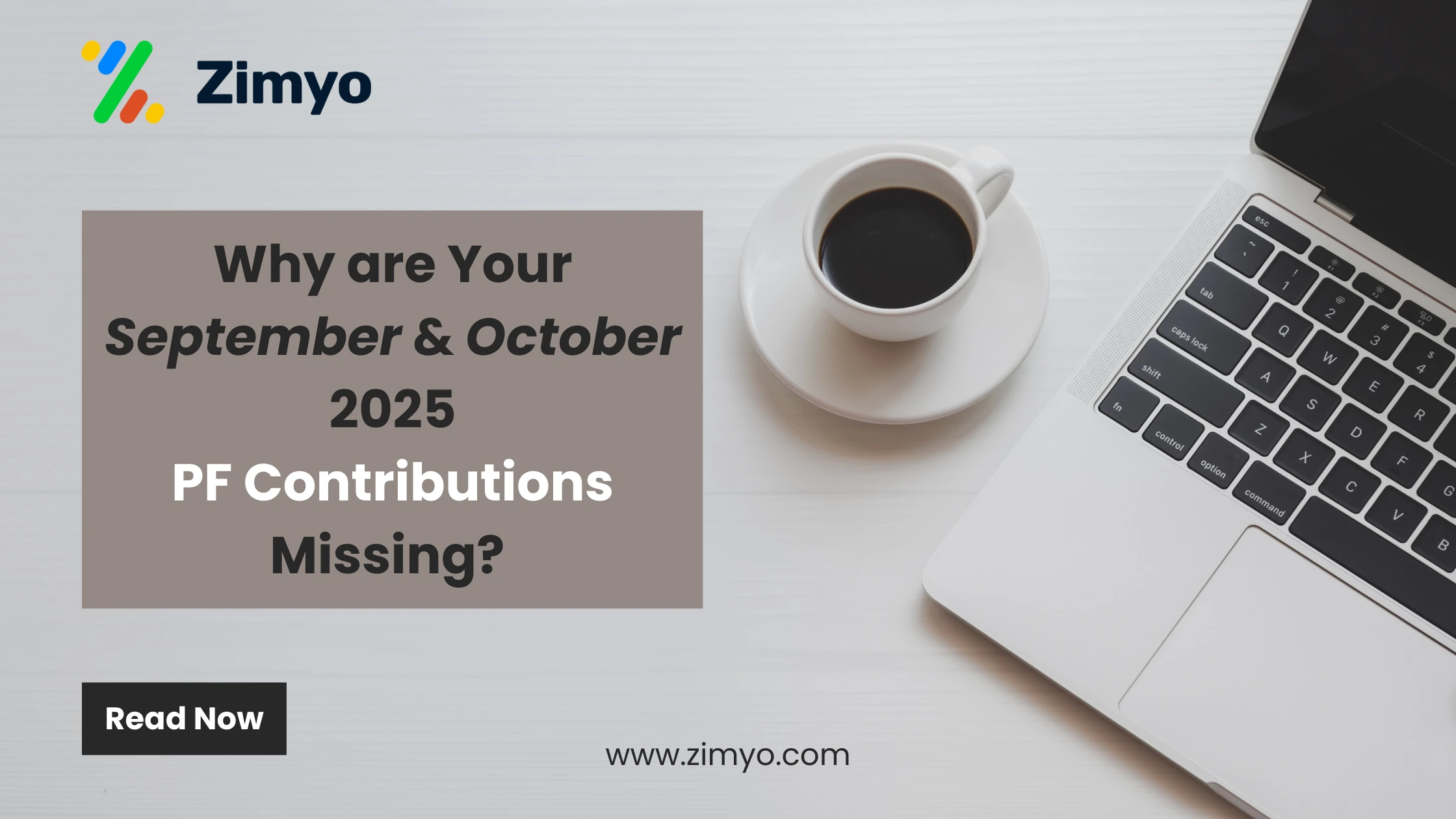Are you curious if EPF (Employee Provident Fund) is deducted from your wages when you work on national holidays? This is an important question, especially for employees and employers in India. Let’s break down how EPF deductions work in relation to national holidays and what the law says about it.
Introduction
In India, the Employees’ Provident Funds and Miscellaneous Provisions Act, 1952, and the Payment of Wages Act, 1936, regulate how salaries are paid and how contributions are made to the Provident Fund. But how does this apply when you work on a national holiday? Is your PF deducted from those extra earnings?
Yes, it is! The wages you earn on a national holiday, including any additional payments (like double wages), are subject to EPF deductions. Let’s explore how this works and what it means for you.
What Does the Law Say About Wages?
First, let’s understand the Payment of Wages Act, 1936. This law defines wages as all payments that are given to an employee for the work they do. It includes:
- Basic pay
- Dearness Allowance
- Any other payments like allowances or extra earnings for working on a holiday
The Act also defines basic wages as the core salary, which is used to calculate benefits like EPF. It excludes bonuses, overtime, and special allowances. However, wages earned for working on national holidays are considered part of the total salary, which means they are eligible for Provident Fund contributions.
How Does EPF Apply to Wages on National Holidays?
Now, let’s turn to the Employees’ Provident Funds Act, 1952. Under Section 6, both the employee and employer are required to contribute a percentage of the employee’s total wages to the EPF. This means:
- If you work on a national holiday and earn extra wages (like double pay), those earnings will be included in your total wage for that period.
- Your EPF contribution is calculated on this total wage amount.

Example of EPF Deduction
Let’s take an example to make it clear.
Suppose you are an employee with a daily basic wage of ₹500. If you work on a national holiday, you are entitled to double pay, so you would earn an additional ₹500 for that day, making your total wage ₹1,000.
Your EPF deductions will then be calculated based on ₹1,000, not just your regular basic wage of ₹500. This ensures that your PF contributions reflect your total earnings, even when you work on holidays.
Why Does EPF Deduction Matter?
You may wonder, why is it necessary to deduct EPF from holiday wages? Here’s why:
- Employee Benefits: By contributing to EPF, you are securing a portion of your income for future retirement, ensuring financial security.
- Employer Responsibility: Employers are mandated by law to contribute to their employees’ Provident Fund, which ensures that employees benefit from all their earnings, even those on holidays.
- Fair Calculation: The law ensures that your PF is calculated fairly, based on the total salary you earn, including for special working days like national holidays.
Key Points to Remember
- EPF is applicable to the total wages earned, including extra payments for working on national holidays.
- Basic wages form the basis for calculating EPF contributions, but all wages (including those from holidays) are considered for Provident Fund deductions.
- Both the employer and the employee contribute to the PF based on the total earnings.
- For example, if you earn ₹500 normally and an extra ₹500 for working on a holiday, your PF contribution is based on ₹1,000.
Breakdown of the Calculation
Here’s how it works:
- Basic wage for the day: ₹500
- Additional pay for working on the holiday: ₹500
- Total wages earned on that day: ₹1,000
- EPF contribution will be calculated on ₹1,000
Why Is This Important for Employers and Employees?
Both employers and employees must comply with the EPF rules, including those applying to holiday earnings. Here’s why it matters:
- For Employees: Your future financial security depends on correct PF contributions. Make sure your employer is deducting EPF based on your total earnings, including holiday pay.
- For Employers: You need to ensure compliance with the EPF Act. If you fail to deduct Provident Fund on wages earned on national holidays, you may face penalties and legal action.
Conclusion
The EPF deduction on wages earned during national holidays is not only applicable but also essential for safeguarding employees’ future financial well-being. By understanding how the Payment of Wages Act and EPF Act work together, employees and employers can ensure compliance with labor laws and contribute fairly to the Provident Fund.
So next time you work on a national holiday, rest assured that your earnings are helping secure your future, thanks to the EPF.
Key Takeaways:
- EPF is deductible from all wages, including those earned on national holidays.
- Both employees and employers must contribute based on the total earnings.
- Ensure that your PF deductions are correctly calculated, even for special days like national holidays.




